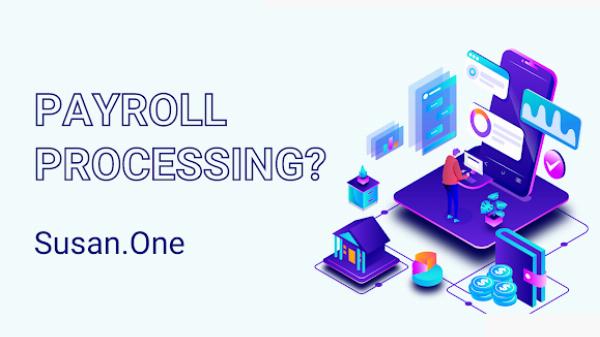Title: Understanding the Basics of Payroll Processing

Strong 8k brings an ultra-HD IPTV experience to your living room and your pocket.
In the intricate dance of business operations, few functions are as crucial and complex as payroll processing. It's the heartbeat of every organization, ensuring that employees are compensated accurately and on time. But what exactly is payroll processing, and why is it so integral to the smooth functioning of a company?
What is Payroll Processing?
Payroll processing refers to the task of managing employee compensation, including wages, salaries, bonuses, and deductions. It involves calculating payments, withholding taxes, distributing paychecks or direct deposits, and maintaining accurate records of financial transactions related to employee compensation.
Why is Payroll Processing Important?
Employee Satisfaction: Timely and accurate payment is essential for maintaining employee satisfaction and morale. A reliable payroll system ensures that employees are compensated fairly and promptly for their work, fostering a positive work environment.
Compliance:
Adhering to legal and regulatory requirements is critical in payroll processing. Tax laws, labor regulations, and reporting obligations vary by location and can be complex. A robust payroll system helps businesses stay compliant with these laws, avoiding costly penalties and legal issues.
Financial Management:
Payroll processing provides valuable financial data for budgeting, forecasting, and financial reporting purposes. Accurate payroll records help businesses track labor costs, analyze spending patterns, and make informed decisions about resource allocation.
Employee Benefits:
Many businesses offer various employee benefits, such as health insurance, retirement plans, and paid time off. Payroll processing involves managing deductions and contributions related to these benefits, ensuring that employees receive the benefits they are entitled to.
Key Steps in Payroll Processing:
Gathering Data: Payroll processing begins with collecting relevant information about employees, including hours worked, wages or salaries, overtime, commissions, and any deductions or contributions.
Calculating Payments:
Once the data is collected, payroll professionals calculate gross wages, taking into account factors such as regular pay rates, overtime rates, and any bonuses or incentives earned.
Withholding Taxes:
Payroll processing involves withholding federal, state, and local taxes from employees' paychecks based on their earnings and tax withholding allowances. Employers are also responsible for withholding Social Security and Medicare taxes from employee wages.
Deductions and Contributions:
Payroll processing includes deducting employee contributions for benefits such as health insurance, retirement plans, and flexible spending accounts. Employers may also make contributions to employee benefits on behalf of their employees.
Issuing Payments:
After all calculations and deductions are made, payroll professionals distribute payments to employees either through physical paychecks or electronic deposits into their bank accounts.
Recordkeeping and Reporting:
Payroll processing requires maintaining accurate records of all financial transactions related to employee compensation. This includes keeping records of earnings, taxes withheld, benefit deductions, and any other relevant information. Additionally, businesses are often required to report payroll data to government agencies for tax and regulatory purposes.
The Role of Technology in Payroll Processing:
Advancements in technology have revolutionized payroll processing, making it more efficient, accurate, and convenient than ever before. Many businesses now use payroll software or integrated human resources management systems (HRMS) to automate payroll tasks, streamline processes, and reduce the risk of errors.
These systems can handle complex calculations, automate tax withholding and reporting, generate payroll reports, and provide self-service portals for employees to access their pay stubs and tax documents online. Additionally, cloud-based payroll solutions offer the flexibility of accessing payroll data from anywhere, anytime, making remote work and multi-location businesses easier to manage.
Conclusion:
Payroll processing is a fundamental aspect of business operations that encompasses various tasks, from calculating employee wages to complying with tax laws and regulations. A well-executed payroll process is essential for maintaining employee satisfaction, ensuring compliance, managing finances effectively, and supporting overall business success. By leveraging technology and best practices in payroll processing, businesses can streamline operations, reduce administrative burden, and focus on their core mission.
Note: IndiBlogHub features both user-submitted and editorial content. We do not verify third-party contributions. Read our Disclaimer and Privacy Policyfor details.


